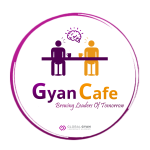Life Has No Summit: Reflections on Self-Renewal


Every once in a while, you read something that feels like it’s speaking directly to you, not about the world, but about yourself. John Gardner’s classic essay, The Road to Self-Renewal, did that for me. It’s an old speech, from 1994, but its message feels even more urgent today. Gardner talks about how people, at any age, can lose their curiosity, stop learning, or settle into a comfortable routine, and how dangerous that is to our potential and our sense of meaning.
Here are some lines that struck me most, and what they made me think about.
“But I do worry about men and women at whatever age functioning below the level of their potential.”
This one hit hard.
As a parent, I’ve always been okay with whatever choices my daughters wanted to make. But I’ve had one consistent wish for them: don’t settle for less. Don’t take the easy way out. Go as close to your potential as you can.
Sometimes we don’t even know what we’re capable of, like Hanuman, before he was reminded of his strength. Often, it takes someone else — a parent, a mentor, a coach — to hold up that mirror. When they do, don’t reject it as interference. Sometimes, that’s the moment we rediscover our potential.
“There’s a myth that learning is for young people… It’s what you learn after you know it all that counts.”
Gardner’s line made me smile. It’s exactly what I believe and write about often — learning is the greatest gift of all.
The Learning to Learn book I wrote came from the same conviction: that curiosity and growth don’t belong to youth; they belong to the alive.
If you’re still curious, still open to feedback, still stretching yourself, you’re young. Whether you’re 30 or 70 is just a detail.
“Of course failures are a part of the story, too. Everyone fails.”
Learning and failure are inseparable twins. You can’t have one without the other.
If we haven’t failed, it probably means we haven’t risked enough. Learning itself is a risk, with a fair chance of embarrassment, rejection, or loss.
But as I often tell participants in our workshops: there’s no real failure — you either succeed, or you learn. The key is to get up, dust off, and go again. That’s how we grow.
“Life isn’t a mountain that has a summit… Life is an endless unfolding and, if we wish it to be, an endless process of self-discovery.”
We love our goals, milestones, and scorecards. But Gardner reminds us that life isn’t a mountain to conquer. There’s no final summit.
I’ve seen so many leaders tie their self-worth to the next title, the next promotion, the next success. And when they “arrive,” they find it strangely hollow.
Life, I think, is less like a climb and more like a series of skirmishes — unexpected turns, battles won and lost, and moments of quiet discovery along the way.
“There is not perfection of techniques that will substitute for the lift of spirit that comes from strong motivation… Keep a sense of curiosity. Discover new things. Care. Risk failure. Reach out.”
This is me.
I’ve always believed that purpose is the hidden engine of performance. Every person has something unique to contribute, but most never find it. They drift through life, doing what’s expected, but never discovering their “why.”
If we can help people find what moves them — what makes them care, risk, and reach out — we unleash their true energy. Because no skill or process can substitute for that inner fire.
“For renewal, tough-minded optimism is best… Men and women of vitality have always been prepared to bet their futures on ventures of unknown outcome.”
You need optimism to do something most others will not. Call it entrepreneurship, call it leadership, it’s that belief that something better can be created.
But optimism must have spine. Gardner calls it “tough-minded optimism” — not the naïve, feel-good kind that collapses after the first failure, but the gritty belief that life will be tough, and we’ll keep going anyway.
It’s the refusal to play victim. The determination to get back on track, because we believe.
“Meaning is something you build into your life.”
This is how Gardner closes, and it’s the perfect full stop.
Meaning isn’t discovered like buried treasure. It’s built, shaped through what we choose to care about, whom we love, what we commit ourselves to.
Each of us is a work in progress, constantly constructing meaning through the experiences, values, and relationships we nurture. And that, perhaps, is the ultimate act of self-renewal.
In Closing
We spend so much time planning for organizational renewal: new strategies, new systems, new goals. But what about personal renewal?
Gardner’s message is timeless: if we stop learning, stop caring, stop risking, we quietly go to seed, no matter how successful we look from the outside.
Self-renewal is not an indulgence. It’s a responsibility to ourselves, to those we lead, and to the world we hope to shape.






Excellent one….. the words are so powerful … renewal is not a onetime effort… its a continuous